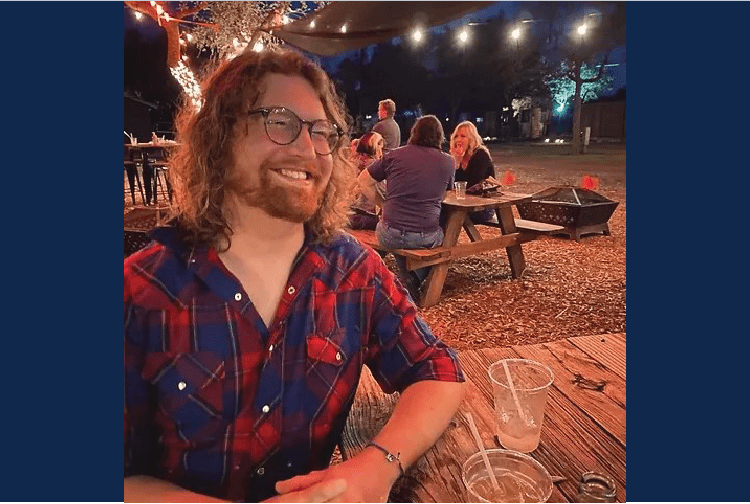I’ve been obsessed with why people live in urban areas since I was a kid making cities out of cardboard boxes
This Q&A was originally published on Planetizen and has been repurposed for the use of Taubman College with the permission of Planetizen and Luke.
Why did you choose to pursue a graduate education in planning?
I’ve been obsessed with why people live in urban areas since I was a kid making cities out of cardboard boxes, which is an odd hobby for a child growing up in a town of 3,000 people. I probably knew I wanted to be a city planner when I freelanced for the Kansas City Star and covered suburban development. Instead, I spent ten years writing about local government as a journalist. Around 2019, I realized many of the issues I was covering could be solved or improved with better planning and better communication. When an urban planner I respect told me “you think like a planner,” I began to consider a career change. I never thought I’d leave journalism, but when most schools waived their GRE requirement during the pandemic, I ran out of excuses not to apply. I was in a unique position in my career: I loved my job, had supporting friends and colleagues, and finally thought “what do I want to do?” The answer was taking a direct role in fixing the problems I’d been writing about.
What planning subject or area most interests you?
This is a tough question because everything is connected. I am interested in building healthy, sustainable communities where it is easier to walk, bike, or bus than to drive. Those kinds of car-optional, transit-oriented areas involve many different planning subjects: transportation, land use, the environment, as well as neighborhood and community development. Taubman College offers a Healthy Cities graduate certificate, which involves interdisciplinary coursework with the public policy and public health schools. Though I did not ultimately apply for the certificate, I have blended public health and environmental planning in my coursework.
What opportunities does your program provide to engage with the community and fellow students?
Many of the engagement opportunities I’ve been a part of came when I was co-president of the Urban Planning Student Association. We sponsor several volunteer, career, and social events throughout the semester, which have included work with the Arboretum Detroit and the university botanical garden. In Detroit, we cleared invasive species for vacant lots and planted trees in a neighborhood nursery with local volunteers.
Intramural sports have been another source of community building for the students. We’ve organized a number of teams, including kickball, dodgeball, and indoor soccer. Our kickball team didn’t fare well earlier this fall, but we’re hoping to redeem ourselves with dodgeball.
The Planning Fundamentals course and the group capstone projects both provide ways to work with other students and get involved with a community. In Fundamentals, students are typically divided into groups that work directly with a city on a real-world planning issue. My group assessed fugitive dust in Southwest Detroit. The capstones operate similarly. One capstone project last year worked on scenario and risk planning in New Orleans and another assessed transportation in Detroit. Both won awards for student projects from the Michigan Association of Planning.
What advice would you offer someone considering a master’s degree in planning?
With the pandemic, it’s understandable that much of my cohort came to graduate school straight from undergrad. I would actually recommend taking a few years off between school programs. The real-world experience I gained has been extremely valuable both when I returned to academia and as I’ve shaped my long-term goals.
For the most part, ignore the rankings. With a few exceptions, most programs are basically the same. Instead, consider the location of the program. Many of the larger programs have connections across the country and internationally, but finding internships and career opportunities locally is often easier. So, if you want to work in the Midwest, look at Midwest schools. You may also want to consider whether the program is inside a larger public policy or architecture school.
Lastly, I would suggest looking at programs outside of the planning department. Dual degrees are very common, so if you’re even vaguely considering adding something outside of planning, make sure the school will accommodate that.
What do you hope to do after completing your degree?
I’d like to work for a city that is prioritizing, or working to prioritize, sustainable growth. Geographically I’m open-minded, but I’d like to be in a place that wants to bridge community engagement and resilience planning. As I said, I’m interested in transit-oriented development and healthy cities, so I’d also like to be in a place that is thinking holistically about public health and the built environment.

